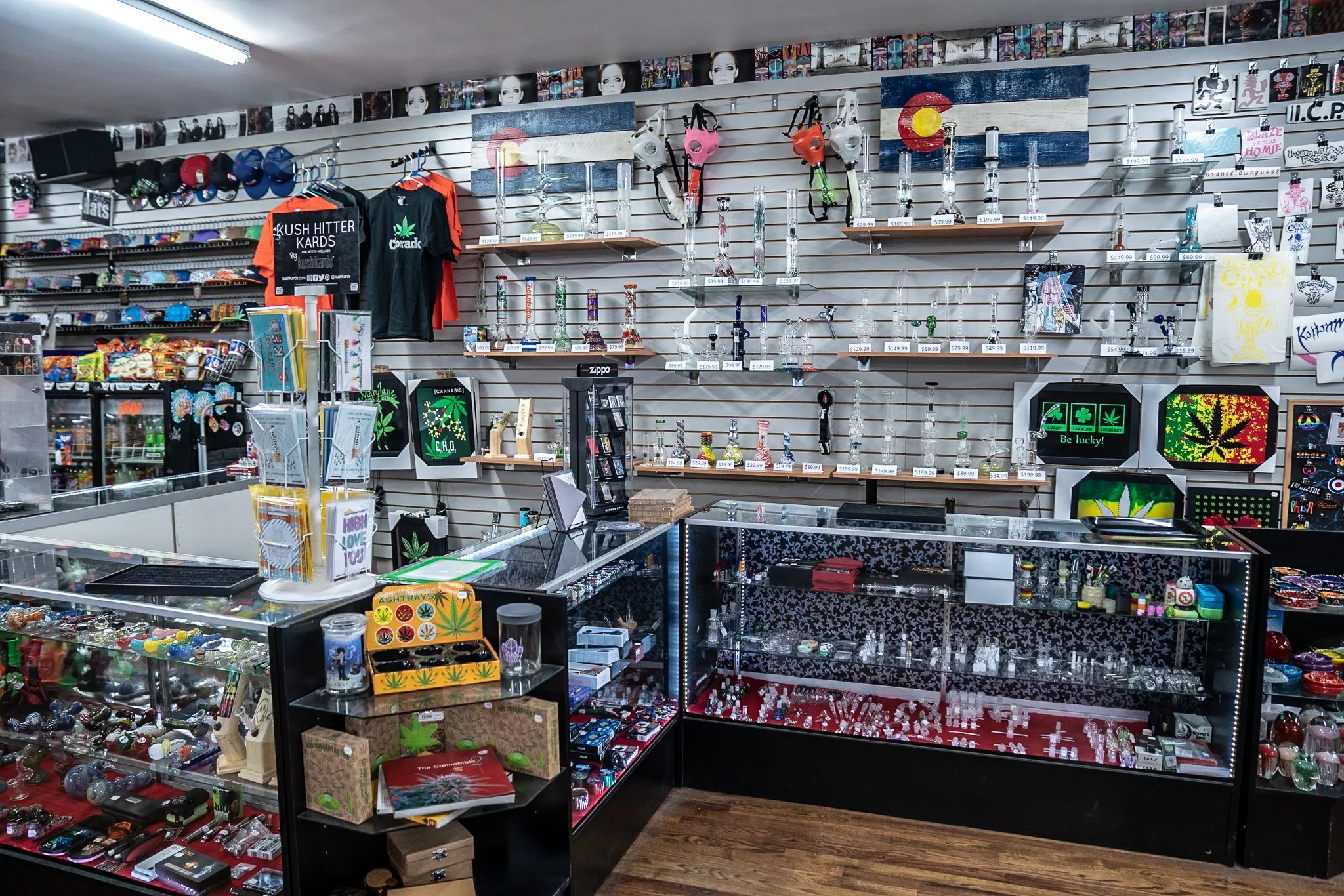
Michael Emery Hecker

Audio By Carbonatix
With the COVID-19 pandemic in full swing for nearly nine months now, Colorado’s marijuana industry has thrived with record-high sales throughout the year. But weed-adjacent retail businesses, considered non-essential by local and state government, haven’t been as flush.
Smoke shops and CBD stores were among retail businesses that were deemed “non-critical” and forced to close during Colorado’s first stay-at-home phase in March. Marijuana dispensaries remained open during the most restrictive phase of pandemic closures, but both hemp-derived CBD retailers and head shops (many of which sell CBD and hemp products) were only allowed to reopen once the state moved into the Safer at Home phase in April. As the pandemic continues, these pot-adjacent operations have been forced to change their business models, which have brought mixed experiences and results.
“When COVID hit, we shifted toward a digital marketing strategy to get people to shop online. We’ve made a huge push toward digital, and we were able to stay on top of it,” explains Nicole Berger, marketing director for Purple Haze, a head shop chain with six locations in the metro area. “We’ve beefed up our online drop, and we’ve been working with artists to do virtual events instead of in-person events like we would normally do, and that’s driven our sales.”
Berger says that a push toward digital marketing actually boosted sales compared to 2019.
“If we’re comparing this year to last year, our sales vastly improved this season – so far, more than any other year,” she says. “I honestly think part of it might just be that people are bored, and they’re shopping online. Even I find myself shopping online more and browsing online more.”
Not everyone in the pipe or CBD business is seeing such success, though. Denver head shop Myxed Up Creations and The CBD Store, a hemp-derived CBD boutique in Loveland, saw online sales increase during the pandemic, but business overall has been slow. Both companies say they began experiencing less traffic in the spring, and that struggle has continued as fewer tourists visit Colorado this year.
“At our store in Loveland, we get a lot of traffic in the summer, because we get a lot of folks from out of town that are going up to Estes Park or Rocky Mountain National Park and are coming back down.” explains Ryan Groves, regional manager of the CBD Store’s Loveland location. “During the summer, it’s a fifty-fifty mix of locals who come to our store from Colorado, and I get a lot of people from out of town checking out Rocky Mountain National Park and Estes and looking to try CBD. Less people are traveling, so that really hurt us this summer.”
Groves says wildfires in surrounding areas earlier this year also hurt the bottom line. However, the hardest strike has come from the economy, he says, as hemp-derived CBD products aren’t regulated by the Food and Drug Administration or covered by health insurance.
“Economically, this pandemic has impacted pretty much everyone. For a lot of our customers that had very limited income, this year has been even harder when managing a budget,” Groves says. “A lot of them have looked at it and said, ‘Well I could use CBD to help with my pain relief or my other condition, or I could just get a prescription and pay a $5 co-pay.'”
According to Groves, the CBD Store’s sales dropped around 50 percent year-over-year in the second and third quarters of 2020, but sales are slowly rebounding at the end of year.
Marijuana-related businesses in Denver also depend on tourism traffic. According to Myxed Up Creations owner Phil Guernin, tourists accounted for about 20 percent of his business before the pandemic. With less money coming through the door, dealing with ever-changing business restrictions during the pandemic has been especially difficult, he adds.
Closed during the initial stage of COVID-19 restrictions, Guernin quickly set up a curbside sales system that was eventually shut down by Denver health officials.
“In the doorway we set up a stainless steel table, so customers couldn’t actually come in the physical space, and we would wipe that down between every customer,” he says. “The city came and shut us down, and told us we were not essential. … We felt like we were an essential business because of the CBD products we offer, and we offer all of the ways to safely consume marijuana.”
Myxed Up was later allowed to conduct curbside pick-up, but the initial shutdown from the city felt like poor messaging to Guernin, who was frustrated by the conflicting messages from government officials during the early stages of the pandemic; he points to statements from National Institute of Allergy and Infectious Diseases director Anthony Fauci in March discouraging Americans from wearing face masks. On April 3, the Centers for Disease Control recommended face coverings, but Governor Jared Polis didn’t issue a statewide mask order until July.
“We’ve gotten no guidance, and the guidance we’ve gotten has been horrible – and then they want it to look like we don’t trust them,” Guernin argues. “You’re taking your last resources just trying to hang on to your business, and then you find out you can’t do that anymore.”
Myxed Up Creations received a Paycheck Protection Program loan, which Guernin is grateful for. But he worries how other small businesses will weather the storm as the pandemic continues.
Although much of Colorado is currently in Level Red COVID-19 restrictions, in-store retail shopping is allowed at lower capacities, including at head shops and CBD stores…just in case you need to do some late holiday gift shopping.